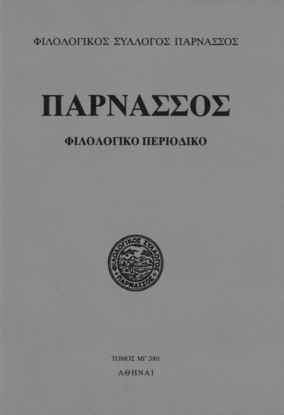Οι γυναικείες αρετές ως αναγκαία προϋπόθεση στη διαμόρφωση του πολίτου κατά τον Πλάτωνα, τον Αριστοτέλη και τη βυζαντινή διανόηση
Part of : Παρνασσός ; Vol.ΜΓ, No.1, 2001, pages 101-108
Issue:
Pages:
101-108
Parallel Title:
Female virtues as a necessary condition for the formation of the citizen according to Plato, Aristotle and the Byzantine thinkers
Author:
Abstract:
Despite the sex-discriminatory character of ancient Greek civilization, where women are excluded from any public office, their important role in society is recognized by eminent philosophers, such as Plato and Aristotle. Ignoring the sexist prejudices of his time, Plato considers women as equal to men: in the Republic, both sexes are qualified to rule the ideal city, as long as they possess all required intellectual and moral qualities. Women are entitled to practical and philosophical education, physical exercise and public administration. Aristotle’s position is clearly more conservative: in accordance to his time’s views, he does not allow for any involvement of women in public life. Nevertheless, he stresses the importance of female virtue in the frame of the family, where women are responsible for the education of their children. In later times, both Stoics and Christians advocate, at least in theory, for a complete equality of men and women, whereas in the Byzantine Empire, female virtue is displayed in the frame of charitable activities. The originality of the paper does not consist in the presentation of the aforementioned facts, which are well known, but rather in the ingenuous endeavor of the author to search for elements of equality of sexes in societies where the modern notion of women’s rights was virtually unknown.
Subject:
Subject (LC):




